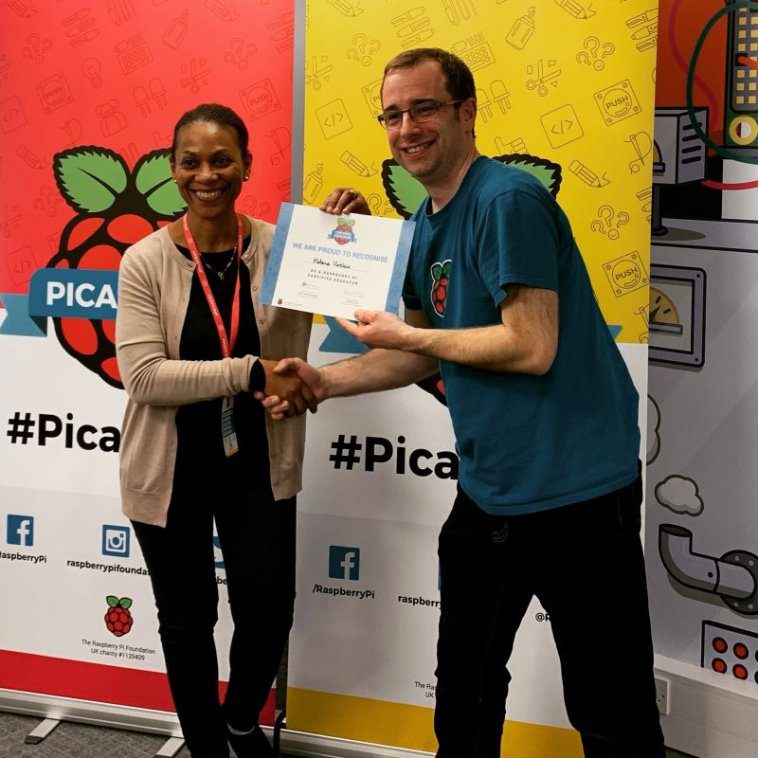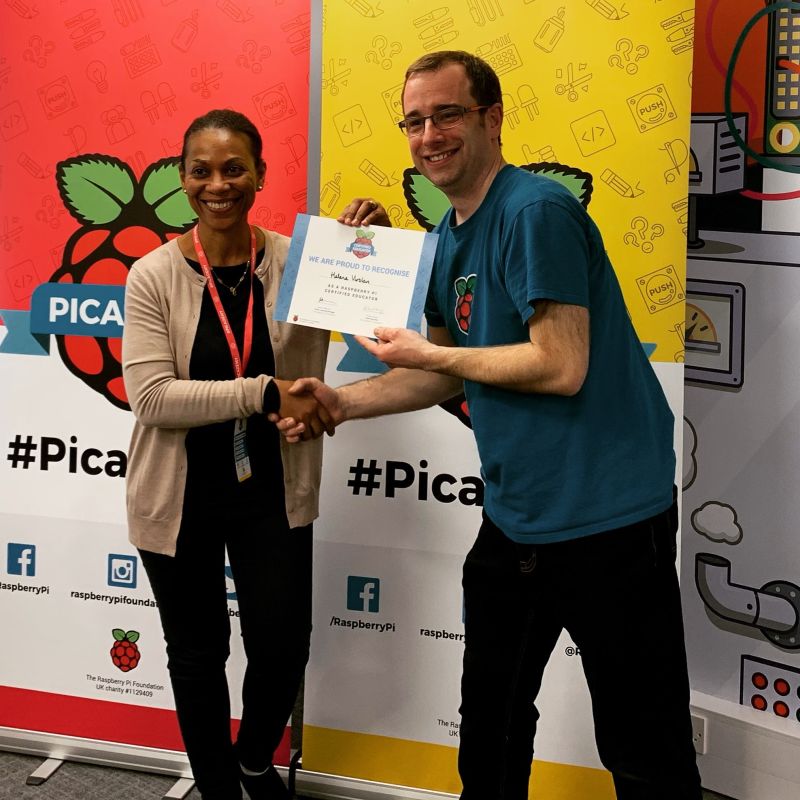The Girls Into Coding (GIC) events were incredibly successful, so Helene has decided to commit fully to the organisation: “Earlier this year, we set higher ambitions and established GIC as a Community Interest Company aiming to offer more girls more opportunities to develop.”
When did you first learn about Raspberry Pi and CoderDojo?
I first learnt about the Raspberry Pi about five years ago at a Raspberry Jam in Covent Garden, Central London. Someone at a Code Club meetup recommended going, so Avye and I did. Avye really enjoyed going to these kinds of events so we continued to go to other Jams. They encouraged her to craft, code and design, and allowed me to discover new things.
At one in particular, I was approached by the organiser of a CoderDojo and was invited to become a mentor. I accepted and soon volunteered as a Scratch mentor. Since my introduction to Raspberry Pi, I’ve enjoyed tinkering with the various iterations, and last year I attended the Picademy in Cambridge to become a Raspberry Pi Certified Educator.
What is Girls Into Coding?
Girls Into Coding was an idea that Avye had when she was ten. By this age she had moved from attending workshops at CoderDojo to preparing and delivering them herself at the Kingston University Dojo and at other community events. After repeatedly observing that most attendees at her workshops were boys, Avye identified a need to help more girls to access these events and was determined to encourage more girls to give STEM a go. As a result, she decided to set up ‘Girls Into Coding’(GIC), a series of events targeting girls.
Girls and women are under-represented in STEM and the new generation has a chance to change that. Girls Into Coding is our way of contributing to that change. Moreover, GIC was set up to encourage girls to explore and enjoy STEM subjects and to encourage them to pursue further activities, education, and careers.
We provide learning opportunities for girls aged 10 and 14. We’ve created workshops and education events to immerse young people in a range of STEM activities. Our workshops are led by Avye and specialist STEM educators, and assisted by volunteers. The workshops consist of robotics, physical computing, and 3D printing. As well as participating in hands-on workshops, the events give the girls an opportunity to listen to lightning talks throughout the day, delivered by inspiring female role models who are doing cool stuff in the tech world.
Do you have any advice for anyone wanting to mentor or help teach computing subjects?
I would encourage anyone to be a mentor, even if they do not have the computing knowledge at first. You can learn as you go along. Preparation is key. Spend some time preparing the session in advance, give yourself enough time to get used to the content, and practise.
Mentoring is a very rewarding experience. It can be daunting at first but after a few mentoring sessions, your confidence will grow and before you know it you will soon find out that you can do it and have fun in the process! Be brave and do not overcomplicate it! There are lots of online tutorials that are available for those starting out. They are a very good place to start.



